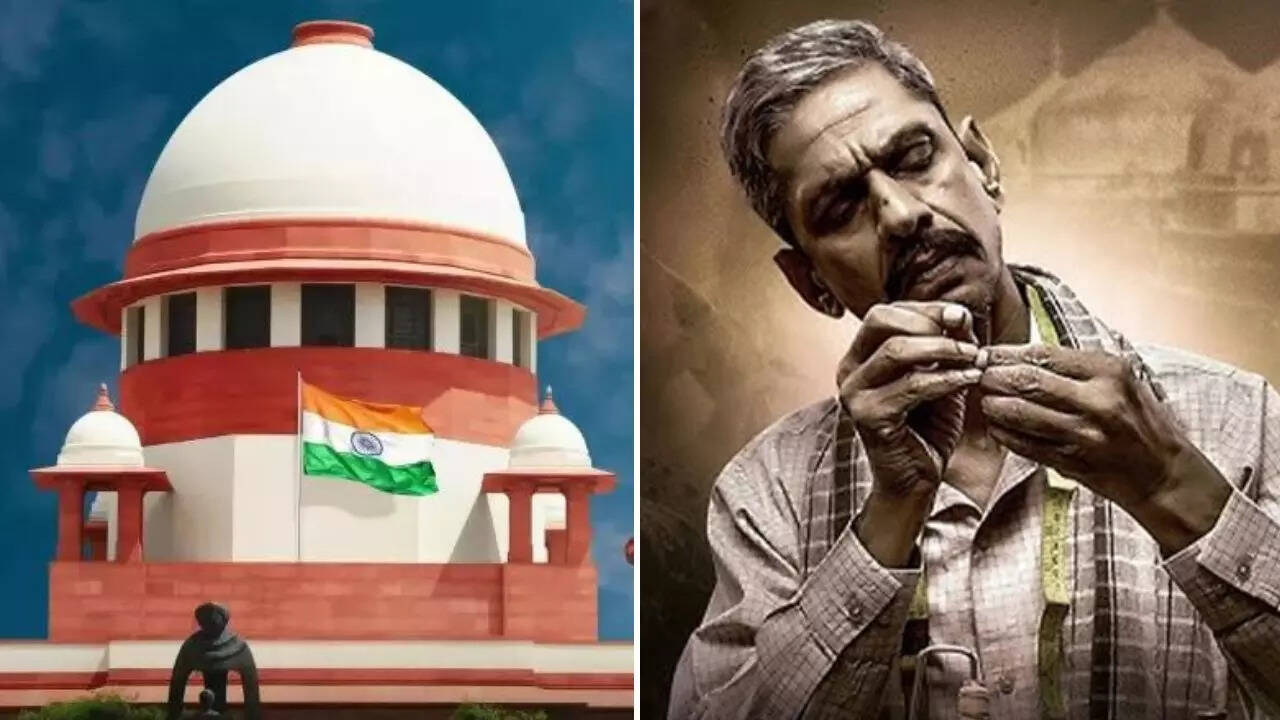In a recent legal development, the Supreme Court has made a decision regarding the controversial film ‘Udaipur Files,’ which revolves around the tragic murder of Kanhaiya Lal. The court has turned down a request for an urgent hearing to stop the movie’s screening. On the other hand, the Delhi High Court has taken a different stance by instructing the film’s producers to organize a screening for the petitioners who are advocating for a ban on the film due to concerns about potential hate speech. The movie delves into the events surrounding the 2022 murder of tailor Kanhaiya Lal.
This legal tussle over the screening of ‘Udaipur Files’ has sparked a heated debate among legal experts and the public alike. The film, based on a real-life incident, has been a subject of controversy since its inception. The plea to halt its screening and the subsequent court rulings have raised questions about freedom of expression, censorship, and the power of storytelling in shaping public opinion.
The Supreme Court’s refusal to grant an urgent hearing underscores the complexities of balancing freedom of speech with concerns about potentially harmful content.
The decision by the Delhi High Court to direct a screening for the petitioners reflects a nuanced approach to addressing the conflicting interests at play. By allowing the concerned parties to view the film before making a final judgment, the court aims to ensure a fair and thorough evaluation of the film’s content and its potential impact on the public discourse.
Legal experts emphasize the importance of upholding freedom of expression while also safeguarding against the spread of hate speech and misinformation through various media platforms.
The case of ‘Udaipur Files’ highlights the broader challenges faced by the entertainment industry in navigating sensitive subjects and historical events. Films based on true stories often walk a fine line between artistic interpretation and factual accuracy, raising ethical and legal dilemmas for filmmakers, producers, and distributors.
The controversy surrounding ‘Udaipur Files’ serves as a reminder of the power of cinema to provoke dialogue, challenge perceptions, and influence societal norms.
As the legal battle over the film continues, it prompts a deeper reflection on the role of cinema as a medium for storytelling and social commentary. The outcome of this case could set a precedent for future disputes involving creative works that touch upon sensitive or contentious issues.
In a world where storytelling holds the power to shape narratives and shape public discourse, the decision regarding ‘Udaipur Files’ carries far-reaching implications for the boundaries of artistic expression, the responsibilities of content creators, and the rights of individuals to engage with diverse perspectives.
The conflicting viewpoints surrounding the screening of ‘Udaipur Files’ underscore the complex interplay between freedom of speech, artistic integrity, and societal values. As audiences await the final verdict on the fate of the film, the case serves as a poignant reminder of the delicate balance between creative freedom and social responsibility in the realm of cinema.









Leave feedback about this